
- ARL is in custom synthesis and specialty chemical manufacturing business.
- Life science specialty chemical has a major share in top lines.
- Capex of Rs. 800 cr. in the last three fiscals has started bearing fruits.
- The issue is aggressively priced based on comparison with listed peers.
- Investors looking for long-term bets may consider investing in this IPO.
ABOUT COMPANY:
Anupam Rasayan Ltd. (ARL) is one of the leading companies engaged in the custom synthesis and manufacturing of specialty chemicals in India (Source: F&S Report). It commenced business as a partnership firm in 1984 as a manufacturer of conventional products and have, over the years, evolved into custom synthesis and manufacturing of life science-related specialty chemicals and other specialty chemicals, which involve multi-step synthesis and complex technologies, for a diverse base of Indian and global customers. The company’s key focus in custom synthesis and manufacturing operations is developing in-house innovative processes for manufacturing products requiring complex chemistries and achieving cost optimization.
It has two distinct business verticals (i) life science-related specialty chemicals comprising products related to agrochemicals, personal care and pharmaceuticals, and (ii) other specialty chemicals, comprising specialty pigment and dyes, and polymer additives. In Fiscal 2020 and in the nine months ended December 31, 2020, its revenues from life science-related specialty chemicals vertical accounted for 95.37% and 93.75%, respectively, of revenue from operations, while revenue from other specialty chemicals accounted for 4.63% and 6.25%, respectively, of revenue from operations, in such periods.
ARL has developed strong and long-term relationships with various multinational corporations, including, Syngenta Asia Pacific Pte. Ltd., Sumitomo Chemical Company Limited and UPL Limited that has helped it expand product offerings and geographic reach across Europe, Japan, United States and India. In particular, it has been manufacturing products for certain customers for over 10 years. In the nine months ended December 31, 2020, ARL manufactured products for over 53 domestic and international customers, including 17 multinational companies. The Government of India has also recognized the Company as a three-star export house.
Continue Reading →
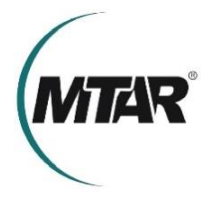
- MTL is a leading precision engineering solution company having a niche play.
- The company manufactures and does critical assemblies that give high margins.
- The company has seven plants including an EOU.
- In FY19 and FY20 it has posted robust growth amidst all odds.
- The issue is worth considering for the long term despite aggressive pricing.
ABOUT COMPANY:
MTAR Technologies Ltd. (MTL) is a leading precision engineering solutions company engaged in the manufacture of mission-critical precision components with close tolerances (5-10 microns), and in critical assemblies, to serve projects of high national importance, through its precision machining, assembly, testing, quality control, and specialized fabrication competencies, some of which have been indigenously developed and manufactured (Source: Company Commissioned CRISIL Report).
The company primarily serves customers in the clean energy, nuclear and space and defense sectors. Since its inception, it has strived to grow continually, contributing to the Indian civilian nuclear power programme, Indian space programme, Indian defense and aerospace sector, as well as to the global clean energy sector and the global defense and aerospace sector. Over the years, the company has also developed import substitutes such as ball screws and water-lubricated bearings that are specialized and used in the sectors it caters to (Source: Company Commissioned CRISIL Report).
Continue Reading →
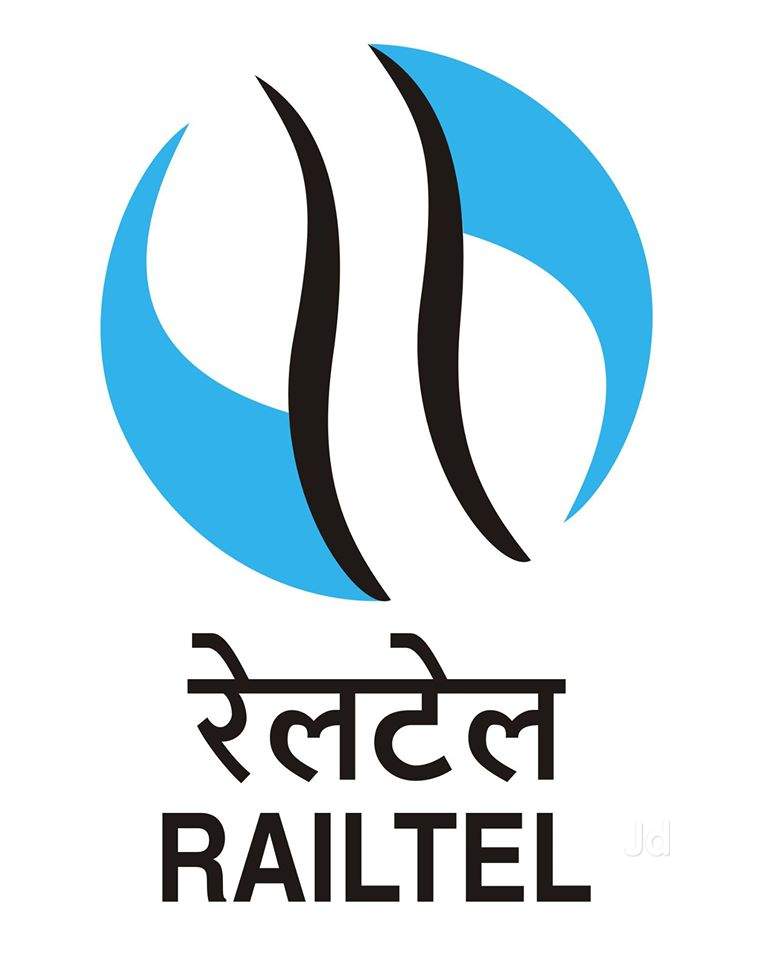
- RailTel is ICT infrastructure providers to Indian Railways.
- The company has posted slow but steady growth for the last three fiscals.
- RailTel lead the pack of the telecom industry with higher profit margins and ROCE.
- The issue appears fully priced, but worth considering for long term investment.
ABOUT COMPANY:
RailTel Corporation of India Ltd. (RailTel) is an information and communications technology (“ICT”) infrastructure provider and one of the largest neutral telecom infrastructure providers in India (Source: CRISIL Report). It is a Mini Ratna (Category-I) Central Public Sector Enterprise, wholly-owned by the Government of India and under the administrative control of the Ministry of Railways. The company was incorporated on September 26, 2000, with the aim of modernizing the existing telecom system for train control, operation and safety and to generate additional revenues by creating nationwide broadband and multimedia network by laying optical fiber cable by using the right of way along railway tracks.
As of January 31, 2021, RailTel’s optical fiber network covers 59,098 route kilometers and covers 5,929 railway stations across towns and cities in India. The transport network is built on high capacity dense wavelength division multiplexing (“DWDM”) technology and an Internet protocol/ multi-protocol label switching (“MPLS”) network over it to support mission-critical communication requirements of Indian Railways and other customers. As of January 31, 2021, under “Railwire” the company has 305746 customers and 5023 AMPs (Access Network Providers) and is an emerging key partner for Indian Railways.
It operates data centers in Gurugram, Haryana and Secunderabad, Telangana to host and collocate critical applications for customers including the Indian Railways. In addition to strategic and critical network infrastructure services, the company also undertakes various ICT projects for the Indian Railways, central government and state governments, including various train control system projects for Indian Railways. Telecom sector is expected to post CAGR of 11% to 13% till 2025 with rising ARPU.
RailTel has a strategic relationship with the Indian Railways and undertakes a wide variety of projects including the provision of mission-critical connectivity services such as Video Surveillance System (“VSS”) at stations and within trains, ‘e-Office’ services and implementing short-haul connectivity between stations and long haul connectivity to support various organizations within the Indian Railways. It also undertakes various passenger services including Content on Demand (“CoD”) services and Wi-Fi across major railway stations in India. With the latest technologies and diversification plans, the company is gearing for steady growth going forward in India and neighbouring countries.
Continue Reading →
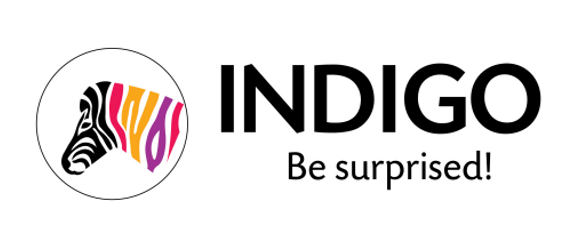
- IPL is the fastest growing paint company and placed in the top five players in India.
- The company has posted spectacular growth compared to listed peers.
- Aggressive pricing mirrors future growth prospects, opined management.
- IPL is largely banking on differentiated products that are being introduced for the first time.
- Investors may consider investing in this IPO with a long term perspective.
ABOUT COMPANY:
Indigo Paints Ltd. (IPL) is the fastest growing amongst top five paint companies in India. The company initially targeted Tier 3 and Tier 4 cities and rural area for its market penetration and is now entering Tier 1 and Tier 2 cities and Metros.
IPL currently manufactures a complete range of decorative paints including emulsions, enamels, wood coatings, distempers, primers, putties and cement paints. It also identifies potential product needs from customers and introduces differentiated products to meet these requirements, and create a distinct market for products. It is the first company to manufacture and introduce certain differentiated products in the decorative paint market in India, which includes Metallic Emulsions, Tile Coat Emulsions, Bright Ceiling Coat Emulsions, Floor Coat Emulsions, Dirtproof & Waterproof Exterior Laminate, Exterior and Interior Acrylic Laminate, and PU Super Gloss Enamel (together, “Indigo Differentiated Products”) (Source: F&S Report). These products are differentiated based on the end-use they cater to, as well as added properties that they possess. The company is currently present in 27 states and 7 Union Territories with extensive penetration in small towns. IPL has installed 4600 tinting machines till September 30, 2020.
Continue Reading →
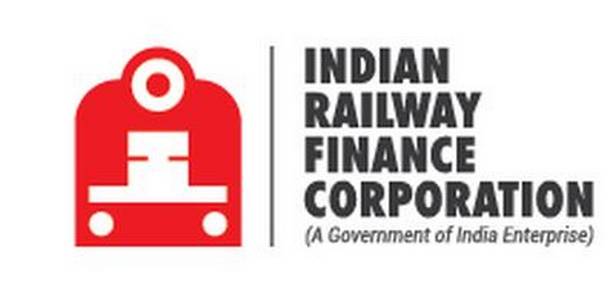
IPO Snapshot
Indian Railway Finance Corporation (IRFC) is launching a Rs. 4,633 crore IPO, between Mon 18th Jan 2021 to Wed 20th Jan, 67% of which is fresh issue and 33% offer for sale (OFS) by Government of India, in the price band of Rs. 25-26 per share. Surprisingly, there is no retail discount, unlike most PSU IPOs of the past. Issue represents 13.6% of post-issue capital, with listing on 29th Jan.
IPO to raise Capital, and not simply Disinvestment
Unlike most PSU IPOs which are OFS to only meet government’s disinvestment target, majority of this IPO will provide growth capital, as this wholly-owned subsidiary of the government, funds wagon purchase/project assets of Indian Railways. Being an NBFC, company’s need for funds is high, with last fund raise being a Rs. 2,500 crore rights issue at face value of Rs. 10 in March 2020. Sovereign backing helps keep cost of funds low and NPAs nil.
Zero Tax Paying Company
While company is not exempt from income tax, its actual tax liability was nil in FY20 as well as H1FY21 and will continue to be so, as long term financial leasing of wagons and projects yields huge unabsorbed depreciation in the company’s books and MAT is not applicable. Thus company’s earnings, which is spreads on lease rentals over borrowing cost, translates into profitability, as operating expenses are minimal.
Continue Reading →
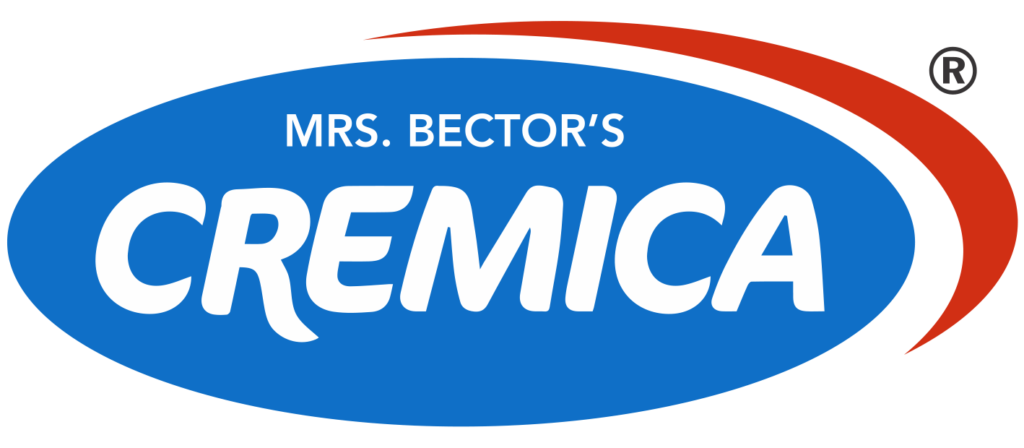
- BFSL is one of the leading players in biscuits and bakery product segments.
- The company supplied its products under two brands “CREMICA” and “ENGLISH OVEN”.
- Its financial performance for the last three fiscal was almost static.
- Super performance for the FY21 first half amidst COVID-19 pandemic is a bit surprising.
BFSL has paid a yearly dividend of 7.5% for the last three fiscals.
ABOUT COMPANY:
Mrs Bectors Food Specialities Ltd. (BFSL) is one of the leading companies in the premium and mid-premium biscuits segment and the premium bakery segment in North India, according to the Technopak Report. The company manufactures and markets a range of our biscuits such as cookies, creams, crackers; digestives and glucose under our flagship brand ‘Mrs. Bector’s Cremica’. It also manufactures and market bakery products in savoury and sweet categories which include breads, buns, pizza bases and cakes under our brand ‘English Oven’. BFSL supplies its products to retail consumers in 26 states within India, as well as to reputed institutional customers with pan-India presence and to 64 countries across six continents during the Financial Year ended March 31, 2020. The company has six manufacturing units – 2 in Punjab and 1 each in Himachal Pradesh, Uttar Pradesh, Maharashtra and Karnataka.
According to Technopak Report, ‘Mrs. Bector’s Cremica’ is one of the leading biscuit brands in the premium and mid-premium segment in Punjab, Himachal Pradesh, Jammu and Kashmir and Ladakh and ‘English Oven’ is one of the largest selling brands in the premium bakery segment in Delhi NCR, Mumbai and Bengaluru. BFSL is the largest supplier of buns in India to reputed QSR chains such as Burger King India Limited, Connaught Plaza Restaurants Private Limited, Hardcastle Restaurants Private Limited, and Yum! Restaurants (India) Private Limited (Source: Technopak Report).
Recently, it has introduced new products such as sub breads, pizzas, garlic breads, cheese garlic bun fills, and frozen cookies for retail as well as institutional customers and during period April 1, 2020, to September 30, 2020, its diversified product portfolio for bakery segment consists of 118 SKUs.
Continue Reading →
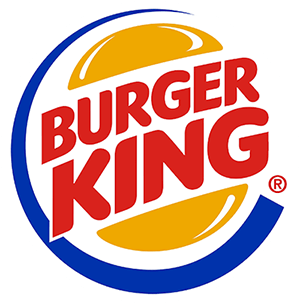
- BKIL is growing international QSR Chains in India.
- “BURGER KING”, “POPEYES”, “TIM HORTONS” are the world brands.
- The company has suffered losses for reported financial periods.
- On PE and P/BV parameters, the issue is priced aggressively.
- 97% of owned outlets is the prime positive factor at present.
- Changing lifestyle, shifting preference of habits posse’s big concerns.
ABOUT COMPANY:
Burger King India Ltd. (BKIL) is one of the fastest-growing international QSR chains in India during the first five years of operations based on the number of restaurants. (Source: Technopak) As the national master franchisee of the BURGER KING® brand in India, it has exclusive rights to develop, establish, operate and franchise Burger King branded restaurants in India. Company’s master franchisee arrangement provides with the ability to use Burger King’s globally recognised brand name to grow its business in India while leveraging the technical, marketing and operational expertise associated with the global Burger King brand.
The globally recognised Burger King brand, also known as the “HOME OF THE WHOPPER®”, was founded in 1954 in the United States and is owned by Burger King Corporation, a subsidiary of Restaurant Brands International Inc., which holds a portfolio of fast-food brands that are recognized around the world that include the BURGER KING®, POPEYES® and TIM HORTONS® brands. The Burger King brand is the second-largest fast-food burger brand globally as measured by the total number of restaurants, with a global network of 18,675 restaurants in more than 100 countries and U.S. territories as at September 30, 2020.
BKIL’s customer proposition focuses on value leadership, offering customers variety through innovative new food offerings at different dayparts, catering to the local Indian palate, offering a wide range of vegetarian meal options, and its taste advantage and flame grilling expertise.
Following fancy for ready to eat and lavish lifestyle, BKIL was able to reach a milestone of 200 outlets in India in the first five years of operations. All was going well till FY20, but then COVID-19 pandemic played a spoil sport and the company faced the music with a severe setback in the first half of the current fiscal. With the sudden change in lifestyle and awareness of healthy food habits to survive in the pandemic is a big concern for this chain of stores.
As of September 30, 2020, BKIL had 261 restaurants, including eight Sub-Franchised Burger King Restaurants, across 17 states and union territories and 57 cities across India. Of our 261 restaurants as of September 30, 2020, 226 were operational. As at the date of this Red Herring Prospectus, it had 259 Company-owned Burger King Restaurants and nine Sub-Franchised Burger King Restaurants, of which 249 were operational; including two sub-franchised Burger King Restaurant.
BKIL plans to continue to build its restaurant network using a cluster approach and penetration strategy with the objective to provide greater convenience and accessibility for customers across relevant geographies. BKIL owns around 97% of the total outlets in India. Management is confident of achieving the target of opening 700 outlets PAN India by extended timeframe up to December 2026 despite current slowdown witnessed following a pandemic.
ISSUE DETAILS / CAPITAL HISTORY:
To part finance its plans for repayment/prepayment of outstanding borrowings (Rs.164.98 cr.), capital expenditure for own outlets (Rs. 177.00 cr.) and general corpus fund needs, BKIL is coming out with a maiden combo offer of fresh equity issue worth Rs. 450 cr. and offer for sale of 60000000 equity shares of Rs. 10 each to mobilize Rs. 810.00 cr. (at the upper price band). BKIL has fixed a price band of Rs. 59 – Rs. 60 for this book built IPO. The company will issue approx. 75000000 fresh equity shares at the upper price band of the issue. Minimum application is to be made for 250 shares and in multiples thereon, thereafter. The issue opens for subscription on December 02, 2020, and will close on December 04, 2020. Post allotment shares will be listed on BSE and NSE. The issue constitutes 35.37% of the post issue paid-up capital of the company.
The company has reserved 75% of the issue for QIBs, 15% for HNIs and 10% for Retail investors.
Having raised initial equity at par, BKIL issued further equity in the price range of Rs. 20 to Rs. 90 per share from November 2014 to November 2020 including pre-IPO placement of 13200000 shares at Rs. 44 per share by way of a rights issue to promoters in May 2020 and 15712820 shares at Rs. 58.50 each to Amansa Investment on November 18, 2020. With this issue, BKIL is looking for a market cap of approx. Rs. 2290 cr. post this issue.
The average cost of acquisition of shares by the promoters is Rs. 23.11 per share. Post issue, BKIL’s current paid-up equity capital of Rs. 306.65 cr. will stand enhanced to Rs. 381.65 cr.
The issue is jointly lead managed by Kotak Mahindra Capital Co. Ltd., CLSA India Pvt. Ltd., Edelweiss Financial Services Ltd. and J M Financial Ltd. While Link Intime India Pvt. Ltd. is the registrar to the issue.
FINANCIAL PERFORMANCE:
On the financial performance front, for the last three fiscals, BKIL has posted turnover/net profit (loss) of Rs. 388.74 cr. / Rs. – (82.23) cr. (FY18), Rs. 644.13 cr. / Rs. – (38.28) cr. (FY19) and Rs. 846.83 cr. / Rs. – (76.57) cr. (FY20). Thus while the top line has shown rising trends, bottom line expressed negative earnings with inconsistency.
For the first half of the current FY21, it has posted a loss of Rs. – (118.95) cr. on a turnover of Rs. 151.65 cr. verses loss of Rs. – (17.43) cr. on a turnover of Rs. 425.37 cr. for the corresponding previous period. The company suffered a severe setback for the first half of the current fiscal on account of COVID-19 pandemic. Management clarified that the company is generating cash surplus, but due to accounting provisioning, it posted losses for all these years.
For the last three fiscals, BKIL has posted an average EPS of Rs. – (2.43) and an average RoNW of – (23.78%). Thus the issue is expressing negative P/E. The issue is priced at a P/BV of 7.87 based on its NAV of Rs. 7.62 (against FV of Rs. 10) as on September 30, 2020. The issue is priced at a P/BV of 3.01 on the basis of post-issue NAV of Rs. 19.93 (at the upper cap)
COMPARISION WITH PEERS:
As per offer documents, BKIL has shown Jubilant Foodworks and Westlife Developments as its listed peers. They are currently trading at a P/Es of around 229.66 and 00 (at the close of November 27, 2020, at BSE). However, they are not strictly comparable on an apple to apple basis.
MERCHANT BANKER’S TRACK RECORDS:
On BRML’s front, four lead managers associated with this issue have handled 22 public issues in the past three years out of which 9 issues closed below the issue price on listing date.
CONCLUSION / INVESTMENT STRATEGY
Burger King met with fancy among the younger generation that helped the company for speedy expansion of its footprint. But in the current situation of COVID-19 pandemic and changing lifestyle habits and shifting preference with rising awareness of immunity diet, Burger King will find it difficult to maintain the progress made in the last five fiscals. Company has huge carried forward losses that are represented in its NAV of Rs. 7.62 (against face value of Rs. 10) as on September 30, 2020. Thus issue appears aggressively priced. Due to its carried forward losses, BKIL has reserved 75% quota for QIBs and they may support the issue for smooth sailing. Extended gestation period may take long to wipe out accumulated losses. The segment is crowded with many organized/unorganized players and posing tough competition. Once normalcy restores, BKIL may achieve the targeted plans. Considering all these, cash surplus, risk savvy investors may consider investing in this issue with a long term perspective.
The original review was written by Dilip Davda, appears on chittorgarh.com and is available here.
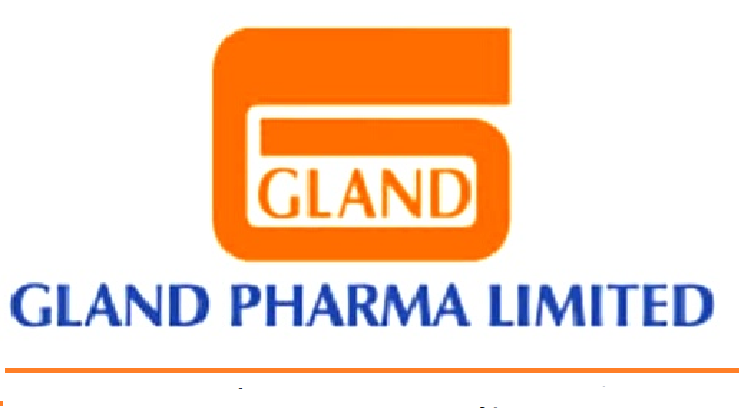
- GPL has a major stake (74%) from China-based Fosun Pharma.
- IPO constitutes 26.45% of the post issue paid-up equity.
- Issue appears fully priced based on P/E and P/BV parameters.
- The company has not paid any dividend in the last three fiscal.
- Negative sentiment for China connection globally raises major concern.
PREFACE:
Gland Pharma has been the talk of the town ever since it filed DRHP for its mega maiden float in pharma segment. It has a very interesting story of its existence. The company formed by PVN Raju in 1978 found a big stakeholder in the form of Fosun Pharma of China that acquired 74% stake in October 2017. Thereafter, the company marked tremendous growth in top and bottom line till FY20. However, ever since COVID-19 pandemic, China is facing a trade war and boycott from the world over and thus this company with major China stake is at the centre stage for the Indian capital market.
As we know not only the Government of India, but even countries like the US, UK, Germany, Japan have started cutting their business deals with China. As this process has been aggravated since April/May 2020, it would be of major concern for the future outlook of this pharma company. According to market circles, unless some big Indian or other multinational stakeholder jumps in to acquire the stake, it will be very difficult to presume the fate of this company in the near term.
In the past, we have seen pharma/healthcare sector IPOs of Eris Life (Rs. 1741.16 cr.), Alkem Lab (Rs. 1349.61 cr.), Laurus Lab (Rs. 1331.80 cr.), Metropolis (Rs. 1204.29 cr.), Aster DM (Rs. 980.14 cr.) and thus, this is the biggest ever IPO in pharma sector for Indian capital market history so far. So on this count too this IPO is a talk of the town.
It’s a known fact that over 80% raw material for pharma business is coming in India from China and it dominates this space globally. But in the present context of negative sentiment for China connections globally post COVID-19 pandemic, once again this IPO is drawing the attention of one and all in regard to responding it. This is indicative from the GMP as it started with a big bang even when formal pricing announcement was missing. And now that pricing announcement is made, it has witnessed a big slide in GMP quotes. If market circles to be believed, this IPO may see a re-run of SBI Card that created fancy before IPO and marked dull listing on debut day.
ABOUT COMPANY:
Gland Pharma Ltd. (GPL) is one of the fastest-growing generic injectables-focused companies by revenue in the United States from 2014 to 2019 (Source: IQVIA Report). It sells products primarily under a business to business (“B2B”) model in over 60 countries as of June 30, 2020, including the United States, Europe, Canada, Australia, India and the Rest of the world. The company has a consistent compliance track record with a range of regulatory regimes across these markets. It also has an extensive track record in complex injectables development, manufacturing and marketing and a close understanding of the related sophisticated scientific, technical and regulatory processes.
It has expanded from liquid parenterals to cover other elements of the injectables value chain, including contract development, own development, dossier preparation and filing, technology transfer and manufacturing across a range of delivery systems. Its promoter, Shanghai Fosun Pharma, is a global pharmaceutical major.
GPL is focused on meeting diverse injectables needs with a stable supply of affordable and high-quality products. It has established a portfolio of injectable products across various therapeutic areas and delivery systems. GPL is also present in sterile injectables, oncology and ophthalmics, and focus on complex injectables, NCE-1s, First-to-File products and 505(b) (2) filings. GPL’s delivery systems include liquid vials, lyophilized vials, pre-filled syringes, ampoules, bags and drops. The company is expanding development and manufacturing capabilities in complex injectables such as peptides, long-acting injectables, suspensions and hormonal products as well as new delivery systems such as pens and cartridges.
GPL is currently following the B2B segment and has up the sleeve B2C market as well. The company has seven manufacturing facilities in India, comprising four finished formulations facilities with a total of 22 production lines and three API facilities. As of June 30, 2020, it had manufacturing capacity for finished formulations of approximately 755 million units per annum.
As of June 30, 2020, it had a sales force of over 200 employees and an extensive countrywide distribution network to ensure coverage in approximately 2,000 corporate hospitals, nursing homes and Government facilities. On the same date, GPL had a workforce of 3766 excluding contract labourers.
As of June 30, 2020, the group had 267 ANDA filings in the United States, of which 215 were approved and 52 were pending approval. The 267 ANDA filings comprise 189 ANDA filings for sterile injectables, 50 for oncology and 26 for ophthalmics related products. Out of these 267 ANDA filings, 101 represent ANDAs owned by it, of which 71 ANDA filings are approved and 30 are pending approval. As of the same date, the group had a total of 1,427 product registrations, comprising 371 product registrations in the United States, Europe, Canada and Australia, 54 in India and 1002 in the Rest of the world.
ISSUE DETAILS / CAPITAL HISTORY:
To finance its needs of working capital (Rs. 769.50 cr.), capital Expenditure (Rs. 168.00 cr.), general corpus fund (SHALL NOT EXCEED 25% OF THE NET ISSUE PROCEEDS) GPL is coming out with a maiden IPO of combo offer of fresh equity issue (Rs. 1250.00 cr.) and offer for sale (Rs. xx cr.). It consists fresh equity issue of approx 8333335 shares of Re. 1 each (at the upper price band) and offer for sale of 34863635 shares. Thus the overall issue will be for approx. 43196970 equity shares. The issue opens for subscription on November 09, 2020, and will close on November 11, 2020. The company has fixed the price band of Rs. 1490 – Rs. 1500 per share. Minimum application is to be made for 10 shares and in multiples thereon, thereafter. Post allotment, shares will be listed on BSE and NSE. GPL mulls mobilizing Rs. 6436.35 cr. – Rs. 6479.55 cr. (Based on lower and upper price bands) through this IPO. The issue constitutes 26.46% of the post issue paid-up capital of the company.
Having issued/converted initial equity at par, the company raised further equity in the price range of Rs. 2.50 to Rs. 48.69 between January 1996 and December 2007. The company also bought back shares in the price range of Rs. 139.81 – Rs. 344.81 between July 2014 and October 2017. It has also issued bonus shares in the ratio of 1 for 1 in February 1994, 1 for 2 in October 1994. (Based on FV of Re. 1 per share).
The average cost of acquisition of shares by the promoters/ other selling stakeholders is Rs. NIL, Rs. 30.12 and 605.12 per share. Post issue, GPL’s current paid-up equity capital of Rs. 15.50 cr. will stand enhanced to Rs. 16.33 cr. With this issue, the company is looking for a market cap of Rs. 24492.42 cr.
The issue is jointly lead managed by Kotak Mahindra Capital Co. Ltd., Citigroup Global Markets India Pvt. Ltd., Haitong Securities India Pvt. Ltd. and Nomura Financial Advisory & Securities (India) Pvt. Ltd., while Link Intime India Pvt. Ltd. is the registrar to the issue.
FINANCIAL PERFORMANCE:
On the financial performance front, on a consolidated basis, GPL has posted total income/net profits of Rs. 1671.68 cr. / Rs. 321.05 cr. (FY18), Rs. 2129.77 cr. / Rs. 451.86 cr. (FY19) and Rs. 2772.41 cr. / Rs. 772.86 cr. (FY20). For Q1 of FY21, it has posted a net profit of Rs. 313.90 cr. on a total income of Rs. 916.29 cr. Currently, around 67% revenue comes from exports to the US, and as known about US-China trade war imbroglio, added tension following Corona pandemic, it is difficult to assume the sustainability of this export business.
For the last three fiscals, GPL has posted an average EPS of Rs. 38.11 and an average RoNW of 18.08%. The issue is priced at a P/BV of 5.86 based on its NAV of Rs. 255.79 as on June 30, 2020, and at a P/BV of 4.70 based on post issue NAV of Rs. 319.29. (Based on upper price band).
GPL has posted CAGR of 27.38% in revenue, EBITDA of 36.90%, restated profits of 55.15% from fiscal 2018 to 2020. Its debt-equity ratio was 0.001 as on June 30, 2020.
For the last three fiscals, GPL has not declared any dividend payouts. (Refer page 185 of RHP).
If we attribute the latest earnings on a fully diluted equity post issue, then asking price is at a P/E of around 19.5. Based on FY20 performance, the asking price is at a P/E of 31.7. Thus prima facie issue is fully priced. The prime concern is the sustainability of Q1 performance in the present context of opposing China connected goods/technology/tie-ups/investments.
BRLM’s TRACK RECORD:
The four Book Running Lead Managers associated with this issue have handled 15 public issues in the past three years, out of which 5 issues closed below the issue price on listing date.
COMPARISION WITH LISTED PEERS:
As per offer documents, GPL has no listed peers to compare with.
Conclusion / Investment Strategy
No doubt that currently, the pharma sector is attracting investors following COVID-19 pandemic and the search of remedies for it globally. This company has posted good performance for the last three fiscals and spectacular numbers for Q1 of FY21, but will it sustain going forward is a major concern in the present context of negative sentiment for China connections globally. Based on P/BV and P/E parameters, the issue appears fully priced. Considering all these, though it sounds lucrative bet for the long term, risk savvy, cash surplus investors may consider investment at their own risk in this China connected IPO.
The original review is written by Dilip Davda and appears on Chittorgarh.com. It is available here.
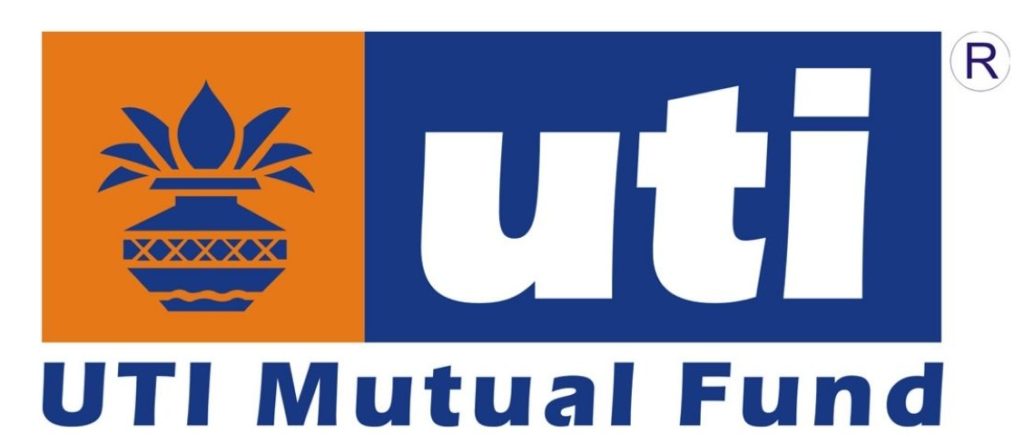
- UTI AMC is the second-largest AMC with a track record of 55+ years.
- It is making a secondary offer for listing benefits and providing exit to existing stakeholders.
- Last three fiscals financial data has shown declining trends.
- Investors may consider an investment with a long term perspective.
PREFACE:
UTI AMC is the revamped version of UTI and is the second-largest AMC having 55+ years track record. With the adoption of new technologies and well-managed portfolio plans, it is gaining grounds. However, for the last three fiscals, it has seen inconsistency in financial performance which is attributed to certain provisioning as per guidelines of regulators. It is back on track with its FY21 Q1 performance claims management.
ABOUT COMPANY:
UTI Asset Management Company Ltd. (UTI AMC) is the second-largest asset management company in India in terms of Total AUM and the eighth largest asset management company in India in terms of mutual fund QAAUM as of June 30, 2020, according to CRISIL. As of June 30, 2020, it also had the largest share of monthly average AUM attributable to B30 cities of the top ten Indian asset management companies by QAAUM as of June 30, 2020, according to CRISIL. UTI AMC caters to a diverse group of individual and institutional investors through a wide variety of funds and services.
The company manages the domestic mutual funds of UTI Mutual Fund, provide portfolio management Services (“PMS”) to institutional clients and high net worth individuals (“HNIs”), and manage retirement funds, offshore funds and alternative investment funds. As of June 30, 2020, its total QAAUM for domestic mutual funds (“Domestic Mutual Fund QAAUM”) was Rs. 1,336.3 billion, while another AUM was Rs. 8,493.9 billion. With 10.9 million Live Folios as of March 31, 2020, its client base accounts for 12.2% of the approximately 89.7 million folios that, according to CRISIL, are managed by the Indian mutual fund industry. UTIAMC’s history and track record in the mutual fund industry, strong brand recognition, distribution reach, performance and client relationships provide a platform for future growth.
The company and its predecessor (Unit Trust of India) have been active in the asset management industry for more than 55 years, having established the first mutual fund in India. For purposes of the SEBI Mutual Fund Regulations, the four sponsors are the State Bank of India (“SBI”), Life Insurance Corporation of India (“LIC”), Punjab National Bank (“PNB”) and Bank of Baroda (“BOB”) (collectively, the “Sponsors”), each of which has the Government of India as a majority shareholder. T. Rowe Price Group, Inc., a global asset management company, is another major shareholder (through its subsidiary T. Rowe Price International Ltd. (“TRP”)).
UTI AMC has a national footprint and offers its schemes through a diverse range of distribution channels. As of June 30, 2020, its distribution network includes 163 UTI Financial Centres (“UFCs”), 257 Business Development Associates (“BDAs”) and Chief Agents (“CAs”) (40 of whom operate Official Points of Acceptance (“OPAs”)) and 43 other OPAs, most of which are in each case located in B30 cities. Company’s IFAs channel includes approximately 53,000 Independent Financial Advisors (” IFAs”) as of June 30, 2020. The company believes that its BDA and CA network distinguishes from other asset management companies in India, as BDAs and CAs, who are engaged by it on an exclusive basis primarily in B30 cities, allow the company to efficiently and effectively develop, maintain and service its relationships with distributors and investors.
UTIAMC’s banks and distributors (“BND”) channel involves distribution arrangements with domestic and foreign banks, as well as with national and regional distributors. In addition, it has dedicated sales teams for institutional and public sector undertaking (“PSU”) clients and also offer products directly through UFCs, digital applications and website. Company’s distribution channels are supported by 459 relationship managers (“RMs”) (as of June 30, 2020), who interact with clients and distributors and help generate new business and maintain existing relationships. Investors are also able to directly invest in its mutual funds through mobile applications for customers. It also has offices in London, Dubai, Guernsey and Singapore, through which it markets offshore and domestic mutual funds to offshore investors who seek to invest in India.
Its clients include domestic individual investors (which represented 43.8% of the total closing AUM for domestic mutual funds (“Domestic Mutual Fund Closing AUM”) as of June 30, 2020), corporate and other institutional investors (which represented 45.4% of Domestic Mutual Fund Closing AUM as of June 30, 2020), and banks and other financial institutions (which represented 3.5% of Domestic Mutual Fund Closing AUM as of June 30, 2020). Trusts (5.7%) and non -resident Indians (“NRIs”) (1.7%) represented the remainder of Domestic Mutual Fund Closing AUM as of June 30, 2020.
It manages 153 domestic mutual fund schemes, comprising equity, hybrid, income, liquid and money market funds as of June 30, 2020. Company’s Domestic Mutual Fund QAAUM was Rs. 1,336.3 billion as of June 30, 2020, which accounted for approximately 5.4%, or the eighth largest amount, of the total QAAUM invested in all mutual funds in India as of June 30, 2020, according to CRISIL.
ISSUE DETAILS / CAPITAL HISTORY:
For listing gains and to provide an exit to existing stakeholders, UTI AMC is coming out with a maiden IPO of an offer for sale of 38987081 shares of Rs. 10 each. The issue opens for subscription on September 29, 2020, and will close on October 01, 2020. The company has fixed the price band of Rs. 552 – Rs. 554 per share. Minimum application is to be made for 27 shares and in multiples thereon, thereafter. Post allotment, shares will be listed on BSE and NSE. UTI AMC mulls mobilizing around Rs. 2152.09 cr. – Rs. 2159.88 cr. (based on lower and upper price band) through this IPO. Issue constitutes 30.75% of the post issue paid-up capital of the company.
The company has reserved 200000 shares for eligible employees. From the residual portion, it has reserved 50% for QIBs, 15% for HNIs and 35% for retail category.
Having issued initial equity at par, the company issued further equity in the price range of Rs. 200 to Rs. 260 between August 2015 and September 2015. It has also issued bonus shares in the ratio of 4 for 1 in December 2006 and 3 for 2 in December 2007.
The average cost of acquisition of shares by the promoters / selling stakeholders ranging from Rs. 99.76 to Rs. 200.43 per share. Post issue, UTIAMC’s current paid-up equity capital of Rs. 126.79 cr. will remain the same post-issue following secondary offer. With this issue, the company is looking for a market cap of Rs. 7024.01 cr. (based on upper price band). Current paid-up equity capital stands supported by free reserves of Rs.2708.14 cr. as on June 30, 2020.
The issue is jointly lead managed by Kotak Mahindra Capital Co. Ltd., Axis Capital Ltd., Citigroup Global Markets India Pvt. Ltd., DSP Merrill Lynch Ltd. (BofA Securities), ICICI Securities Ltd., JM Financial Ltd., and SBI Capital Markets Ltd. while KFin Technologies Pvt. Ltd. is the registrar to the issue.
FINANCIAL PERFORMANCE:
On the financial performance front, for the last three fiscals, on a consolidated basis, UTI AMC has posted revenue/ net profits of Rs. 1162.75 cr. / Rs. 405.09 cr. (FY18), Rs. 1080.89 cr./ Rs. 347.93 cr. (FY19) and Rs. 890.96 cr. / Rs. 275.49 cr. (FY20). Thus it has shown declining trends in income. However, for the Q1 of FY21, the company has earned a net profit of Rs. 101.08 cr. on revenue of Rs. 271.07 cr.
For the last three fiscals, on a consolidated basis, UTI AMC has posted an average EPS of Rs. 24.83 and an average RoNW of 12.02%. The issue is priced at a P/BV of 2.48 based on its NAV of Rs. 223.60 as on June 30,, 2020 (based on upper price band).
If we attribute annualize latest earnings and attribute on fully diluted equity post issue, then asking price is at a P/E of around 17.37 against industry average P/E of 38.64. However, if we attribute FY20 earnings then the issue is at a P/E of 25.49. Thus prima facie issue is fully priced based on latest earnings.
BRLM’s TRACK RECORD:
The seven Book Running Lead Managers associated with this issue have handled 28 public issues in the past three years, out of which 09 issues closed below the issue price on listing date.
COMPARISION WITH LISTED PEERS:
As per offer documents, UTI AMC has shown HDFC AMC (market cap Rs. 44746 cr.) and Nippon Life AMC (market cap Rs. 15565 cr.) as its listed peers. They are currently trading at a P/Es of 35.19 and 35.08 respectively. (As on September 25, 2020 noon).
Conclusion / Investment Strategy
UTI AMC has emerged as the second-largest AMC post revamp. According to management, they are back on track with its improved performance for FY21 Q1. The company is gearing to give the best services to its clients and investors with modern technology and research-based investments. Considering its financial performance so far, the issue appears fully priced. Investors may park their funds with a long term perspective.
The original review is penned by Dilip Davda, appears on Chittorgarh.com and is available here.
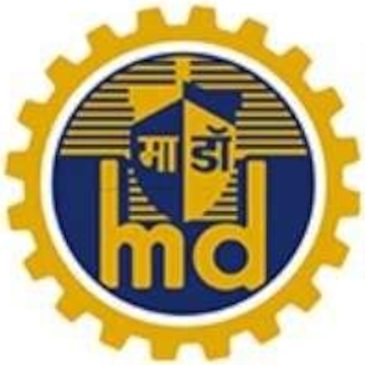
- MDSL is one of the defence public sectors undertaking with “Mini Ratna-1” status.
- A regular dividend-paying company since last 15 years.
- MDSL has orders on hand worth Rs. 54000 cr. plus to be executed in the next 6/7 years.
- The issue is priced reasonably to benefit one and all.
- Investors may consider investment for the medium to long term.
PREFACE:
MDSL filed its DRHP in the month of March 2018 and is now finally coming with its maiden IPO in September 2020. Management clarified that while the volatile market was at center stage, regulatory clearances and other unforeseen circumstances caused the delay. It enjoys a virtual monopoly in destroyers and submarine buildings.
ABOUT COMPANY:
Mazagon Dock Shipbuilders Ltd. (MDSL) is a defence public sector undertaking shipyard under the department of defence production, MoD (Ministry of Defence) with a maximum shipbuilding and submarine capacity of 40000 DWT (Source CRISIL Report). The company is engaged in the construction and repair of warships and submarines for the MoD for use by the Indian Navy and other vessels for commercial clients. It is a wholly-owned Government of India company, conferred with the “Mini Ratna-I” status in 2006, by the DPE. MDSL is India’s only shipyard to have built destroyers and conventional submarines for the India Navy. It is also one of the initial shipyards to manufacture Corvettes (Veer and Khukri class) in India.
Thus MDSL has business divisions in which it operates are Shipbuilding (includes building and repairs of naval ships), Submarine and heavy Engineering. The company is currently building four P-15 B destroyers and four P-17A stealth frigates and undertaking repair and refit of a ship for the Mod for use by the Indian Navy. MDSL is currently building/in the process of delivering four Scorpene-class submarines under a transfer of technology agreement with Naval Group as well as one medium refit and life certification of a submarine for the Mod for use by the Indian Navy. Since 1960, the company has built a total of 795 vessels including 25 warships, from advanced destroyers to missile boards and three submarines (source CRISIL report). The company has also delivered cargo ships, passenger ships, supply vessels, multipurpose support vessels, water tankers, tugs, dredgers, fishing trawlers, barges and border outposts for various customers in India as well as abroad (source CRISIL).
MDSL’s shipyard is strategically located on the west coast of India, on the sea route connecting Europe, West Asia and the Pacific Rim, a busy international maritime route. Some of the vessels built and delivered by MDSL in the past include six Leander class frigates, three Godavari class frigates, three corvettes, four missile boards, six destroyers, four submarines and three Shivalik class frigates for the Mod for the use by the Indian Navy and constructed and delivered seven offshore patrol vessels to the Indian Coast Guard.
As on the date of filing RHP, the company has a healthy order book worth Rs. 54000 cr. which is to be executed in the next six to seven years. MDSL suffered a severe setback in 2003 to 2005. The company has an uninterrupted dividend track record for the last 15 years.
ISSUE DETAILS / CAPITAL HISTORY:
For listing gains and to disinvest Government of India’s stake, MDSL is coming out with a maiden IPO of an offer for sale of 30599017 shares of Rs. 10 each. The issue opens for subscription on September 29, 2020, and will close on October 01, 2020. The company has fixed the price band of Rs. 135 – Rs. 145 per share. Minimum application is to be made for 103 shares and in multiples thereon, thereafter. Post allotment, shares will be listed on BSE and NSE. MDSL mulls mobilizing around Rs. 413.09 cr. – Rs. 443.69 cr. (based on lower and upper price band) through this IPO. Issue constitutes 15.17% of the post issue paid-up capital of the company.
The company has reserved 345517 shares for eligible employees. From the residual portion, it has reserved 50% for QIBs, 15% for HNIs and 35% for retail category.
Having issued/converted entire equity at par, the company issued bonus shares in the ratio of 1 for4 in March 2017. The company also bought back 24900000 equity shares @ Rs. 101.80 in December 2017 and 22410000 equity shares at Rs. 124 in March 2020.
The average cost of acquisition of shares by the promoters/ selling stakeholders is Rs. 16.47 per share. Post issue, MDSL’s current paid-up equity capital of Rs. 201.69 cr. will remain the same as this is a secondary offer. With this issue, the company is looking for a market cap of Rs. 2924.51 cr. (based on upper price band). Current paid-up equity capital stands supported by free reserves of Rs.2867.44 cr. as on March 31, 2020.
The issue is jointly lead managed by Yes Securities Ltd., Axis Capital Ltd., Edelweiss Financial Services Ltd., DAM Capital Advisor Ltd. (erstwhile IDFC Securities Ltd.) and JM Financial Ltd., while Alankit Assignments Ltd. is the registrar to the issue.
FINANCIAL PERFORMANCE:
On financial performance front, for the last four fiscals, on a consolidated basis MDSL has posted revenue/comprehensive net profits of Rs. 4274.86 cr. / Rs. 598.26 cr. (FY17), Rs. 5027.63 cr. / Rs. 496.17 cr. (FY18), Rs. 5204.67 cr./ Rs. 532.47 cr. (FY19) and Rs. 5535.31 cr. / Rs. 477.06 cr. (FY20).
For the last three fiscals, on a consolidated basis, MDSL has posted an average EPS of Rs. 22.03 and an average RoNW of 16.21%. The issue is priced at a P/BV of 0.95 based on its NAV of Rs. 152.17 as on June 30, 2020 (based on upper price band). For the last three fiscals, MDSL has distributed on an average Rs. 23.4 cr. as yearly dividend payouts.
If we attribute FY20 earnings on fully diluted equity post issue, then asking price is at a P/E of around 6.39 (based on upper price band), against peer group average P/E of 7.5. The issue is reasonably priced leaving something on the table for all.
BRLM’s TRACK RECORD:
The five Book Running Lead Managers associated with this issue have handled 23 public issues in the past three years, out of which 09 issues closed below the issue price on listing date.
COMPARISION WITH LISTED PEERS:
As per offer documents, MDSL has shown Cochin Shipyard, Reliance Naval and Garden Reach Shipbuilders as its listed peers. They are currently trading at a P/Es of 7.36, 00 and 13.33 (as on September 24, 2020). However, they are not truly comparable on an apple to apple basis.
Conclusion / Investment Strategy
MDSL, a Mini Ratna-1, has been a profit-making and dividend distributing PSU under MoD. It has orders worth Rs. 54000+ crore on hand which are to be completed in 6 to 7 years. Its financial track record so far has been indicating sustained top line with ups and down in PAT due to certain provisioning. Being a maiden IPO from a shipyard that builds destroyers and submarine is sure to catch fancy post listing. Investors may consider investment for the medium to long term perspective in this reasonably priced issue.
The original review is authored by Dilip Davda, appears on Chittorgarh.com and is available here.















